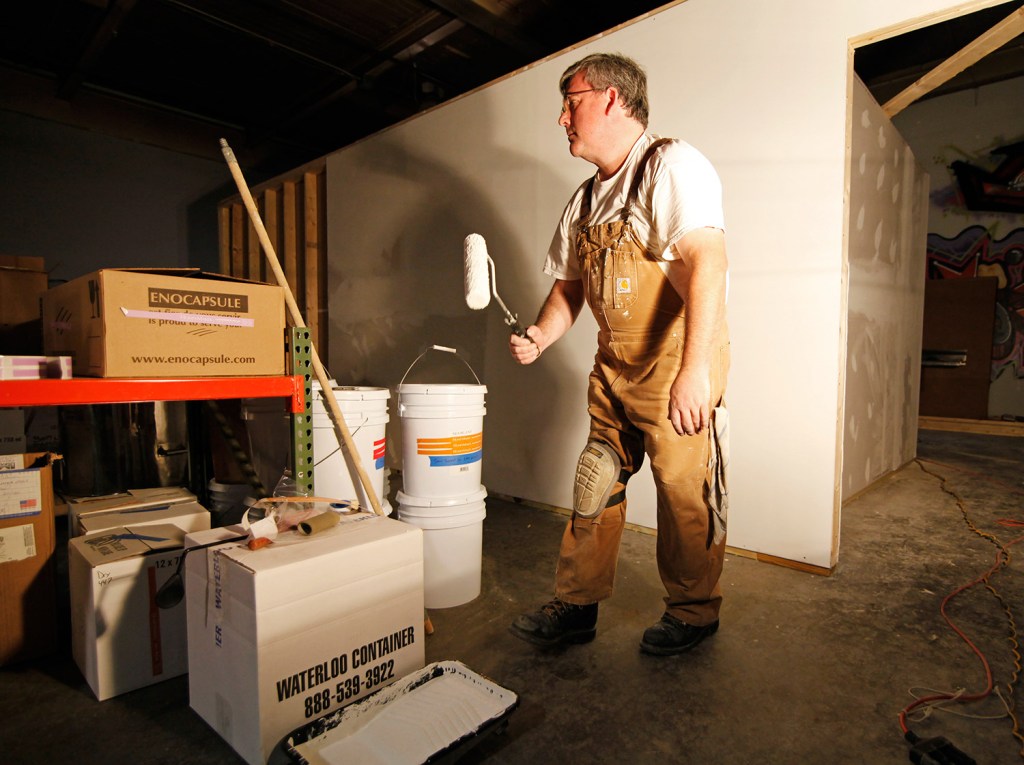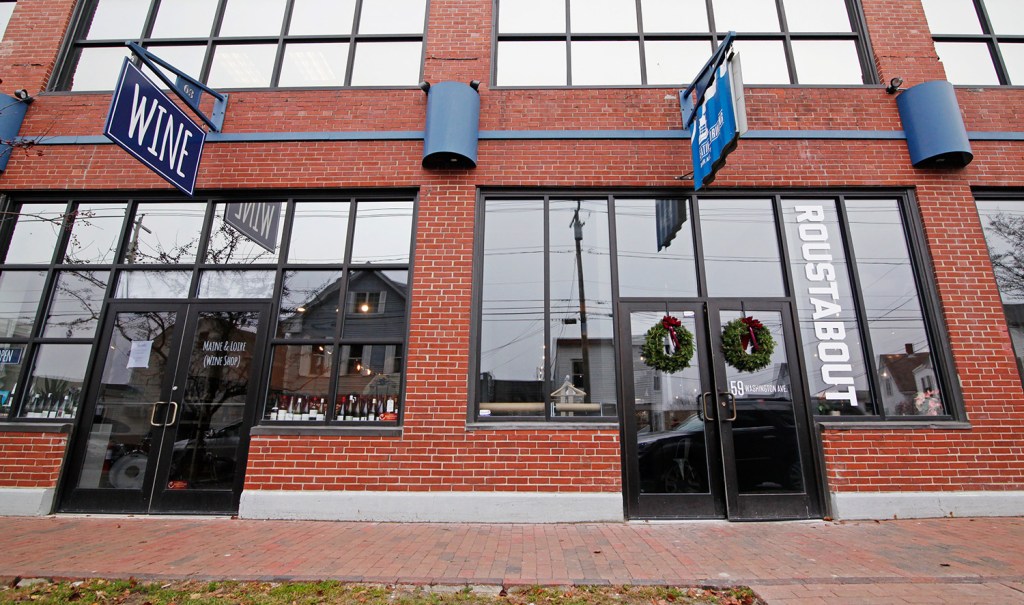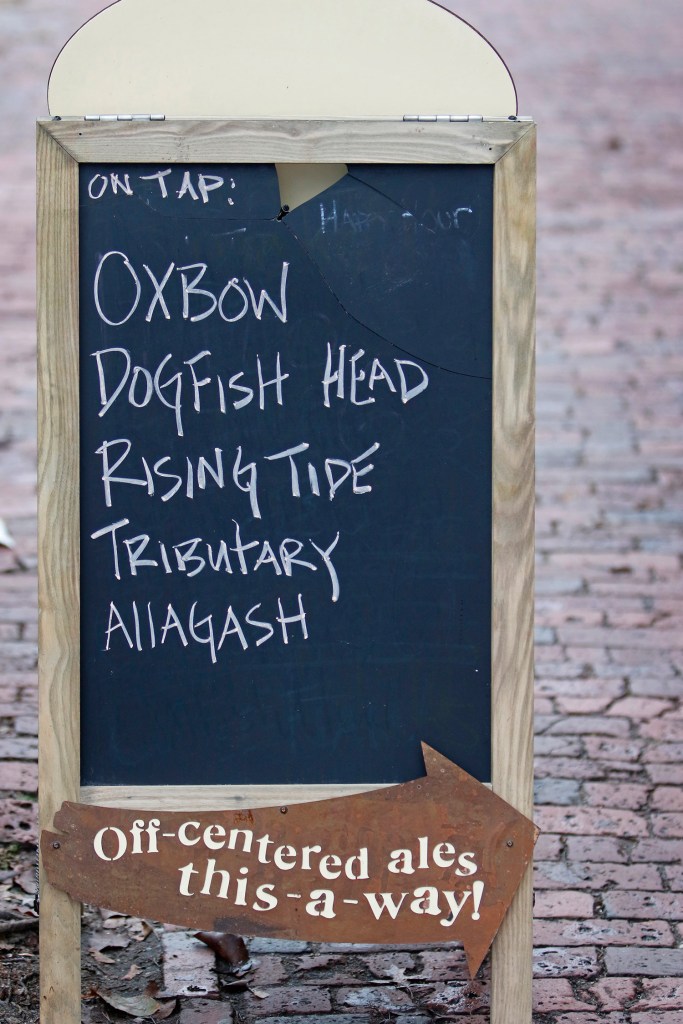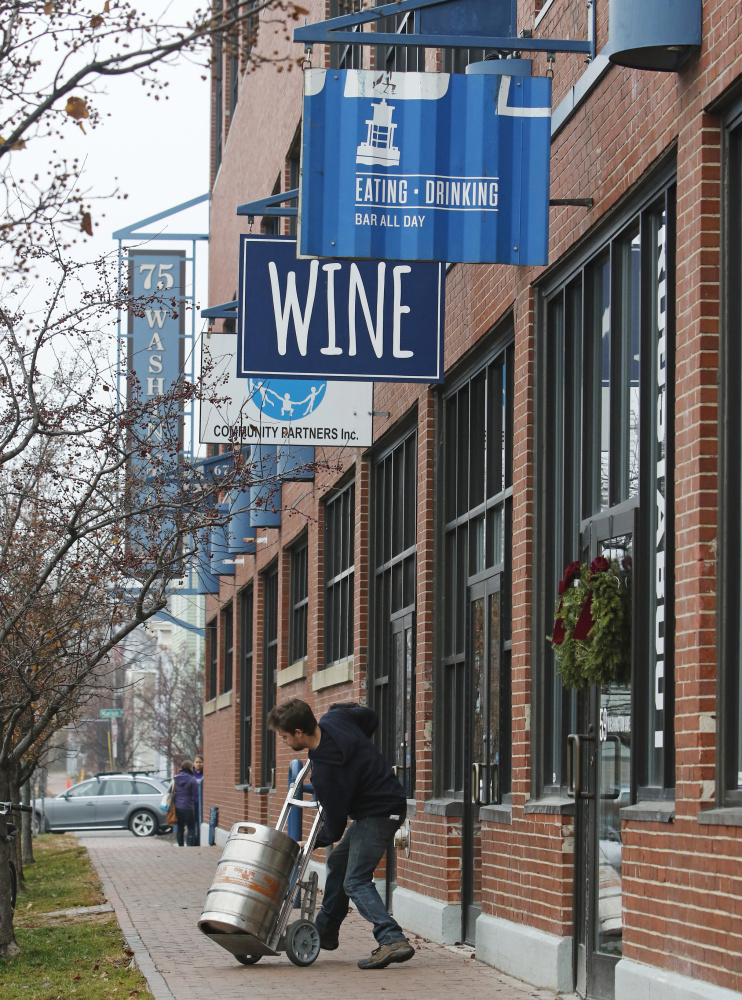When Jed Harris bought the former J.J. Nissen Baking Co. building 18 months ago, he knew he wanted the 130,000-square-foot network of office, retail and warehouse space to be a catalyst for development along the strip of Washington Avenue that runs between Congress and Fox streets. But even he – a 15-year veteran of Portland’s real estate scene – has been “amazed” at the street’s fast-paced transformation into the city’s newest food hub.
In just the past year, two new restaurants have opened, as well as a beer tasting room and a wine shop. Other projects are in the works: a wine bar, a distillery, a wholesale honey production facility, and a cafe and chocolatier. Still in the rumor mill: a new juice bar and another restaurant.
“Real estate moves very slowly, but to see all the changes that have happened on Washington Avenue and the neighborhood have just been unbelievable,” said Harris, managing partner of North Atlantic Properties.
A few restaurants and ethnic markets have come and gone on Washington Avenue over the years. Others have stood the test of time – Silly’s restaurant (since 1997), Coffee By Design (2005) and the Salvadoran restaurant Tu Casa (2002) come to mind. But in recent memory, the neighborhood – long a home to an eclectic mix of convenience stores, auto body shops, residences and industrial businesses – has never seen anything like what is happening now.
Restaurants report a lot more foot traffic; Maine Mead Works is expanding its tasting room hours to accommodate First Friday revelers; and parking is becoming problematic, according to several businesses. It’s mostly on-street and too restrictive.
Just a decade ago, few Portlanders would have considered spending an evening strolling along Washington Avenue, a place where they can now start their outing with a beer at Oxbow Blending & Bottling or a wine tasting at Maine & Loire, then walk a few yards to enjoy a pasta dinner at Roustabout or Texas-style barbecue at Terlingua. With the addition of The Lively Palate sometime in February, they’ll be able to finish off their evening with a pastry or chocolate truffle.
Colleen Kelley, owner of Silly’s, said she is thrilled with all the changes. “People still think the area is sketchy, but I have never thought it was, and with all this new business maybe the perception will change,” she said.
AVENUE ENJOYS GROWING APPEAL
On a Sunday in early December, a half-dozen bundled-up 20-somethings carrying coffee from Coffee By Design ambled across the street to check out Terlingua, then wandered back across the street to Roustabout, looking in windows along the way. Both restaurants were holding their first brunch service, and parking was scarce all the way down to Tu Casa and the Portland Pottery Cafe. Maine Mead Works’ tasting room was open, and several cars were parked there, perhaps to check out the seasonal cranberry mead advertised on a sign out front.
Drew Sigfridson of The Boulos Co. said that when his company was involved with leasing the Nissen building more than a decade ago, it struggled to find business tenants and ended up renting mostly to light industrial and “back office” tenants doing administrative work.
He and other commercial brokers attribute the growth of the area into a pedestrian-friendly food hub to several factors, most obviously the hot residential real estate market on adjacent Munjoy Hill. Beyond that, rents on Washington Avenue are one-third to one-half of those in the heart of the Old Port, where restaurant space goes for an average of $25 to $35 per square foot, and more opportunities exist to buy, as the owners of Terlingua did, instead of renting.
“The Old Port and waterfront real estate has become increasingly tight, so these food operators are forced to consider alternative locations,” said Justin Lamontagne, a broker with The Dunham Group.
According to Harris, who paid $7.2 million for the Nissen building and stands to profit from the neighborhood’s transformation, zoning is less restrictive on Washington Avenue than in some parts of East Bayside, another part of town that has recently attracted a lot of food-and-drink-related businesses. Plus, Washington Avenue is close to downtown and easy to reach from other parts of the city by foot, bike or car.
Lamontagne has personally benefited; he lives across Tukey’s bridge in East Deering, so it’s easy to for him to pop over for drinks or dinner. “It’s added quite a bit to my night life,” he said.
Pliny Reynolds, who opened Terlingua in June with his wife, Melanie Kratovil, said that most of their customers have been residents of Munjoy Hill, along with a mix of foodies and people who work in the restaurant industry.
Reynolds and Kratovil moved to Portland from Texas three years ago. They wanted to find an affordable building that would be an investment and could house both a restaurant and their growing family. They found their home on a corner of Washington Avenue, but it wasn’t restaurant ready. When the building next door came up for sale after an African restaurant it housed relocated, they grabbed it, paying $235,000, according to city tax records.
Washington Avenue, Reynolds said, reminds him of their old home on the east side of Austin – an ethnically mixed, up-and-coming neighborhood that attracted “this whole creative class of people.”
“We thought this had the same potential,” he said, “but I honestly didn’t anticipate it happening so fast.”
A PLACE FOR NOURISHING DREAMS
Reynolds has since rented space to chef Paul Lively, whose 35-seat, not-yet-open cafe, The Lively Palate, will serve soups, salads and sandwiches during the day and housemade charcuterie and desserts at night. He’ll have jazz on the weekends and has plans for cooking classes and tasting dinners three times a month.
Lively’s take on Washington Avenue: “In the next year this will be considered one of the hottest places” in Portland.
Across the street in the old Nissen building, with its high ceilings and open spaces, Kit Paschal found his own dream. The former Boston resident moved to Portland with his wife a couple of years ago and initially worked at the Portland Hunt & Alpine Club. “We didn’t move here to set roots down intentionally,” he said. “I just fell in love with the community of small-business owners here.”
Paschal wanted to open an approachable, neighborhood restaurant with competitive prices. He had no interest in going head-to-head with restaurateurs downtown who suffer through the feast-or-famine of summer tourist season. “It’s kind of like a shark tank in the Old Port,” he said.
In November, he opened a 70-seat Italian restaurant called Roustabout at 59 Washington Ave. Paschal is lucky in that his customers can use a parking lot at 75 Washington Ave. after 5 p.m. and on weekends. But the street around his restaurant is littered with “15 minutes only” signs that were fine for delivering bakery supplies but impractical for customers hoping to linger over a plate of eggplant Parmesan. He plans to ask City Hall to change the parking rules.
“I think if you told a lot of people that they’d be sitting outside eating dinner on Washington Avenue, they would have laughed at you,” Paschal said. “But then three months later, they’re all sitting on the cute picnic tables at Terlingua and enjoying a margarita and barbecue.”
MORE NEWCOMERS ON THE WAY
The next wave of food-and-drink-related businesses on Washington Avenue will include Phil and Meghan Gaven, owners of The Honey Exchange on Stevens Avenue, who are constructing a production facility next to Maine Mead Works. The Gavens are getting into the bulk honey business, providing honey for coffee shops, breweries, bakeries and hobbyist mead makers. The new place has a loading dock, so they’ll be able to deal in honey by the barrel, making it cost-effective for resale. They’ll also be storing parts for the beehives sold at their Stevens Avenue store, a portion of the business that they didn’t expect would grow so rapidly.
Jed Harris has just signed a lease with Hardshore Distilling Co., a startup owned by New York transplant Jordan Milne that is expected to be making gin and whiskey by spring.
Another restaurant is rumored to be going into Casale’s Auto Sales and Service, which now has an empty lot and disconnected phone, but the restaurateur involved declined to confirm his plans.
Despite all the new activity, business owners say plenty of room remains. Harris has 7,000 to 8,000 square feet of warehouse space he said could become available in the next year. And everyone is looking down the street, expecting growth to flow toward Interstate 295 and up the hill from East Bayside.
Redfern Properties is building 53 apartments on Anderson Street, near the corner of Fox and Anderson, and a restaurant-ready space is part of the plan.
“As long as the (city’s) restaurants are full,” Lamontagne said, “there’s still going to be demand for more.”
Send questions/comments to the editors.











Comments are no longer available on this story